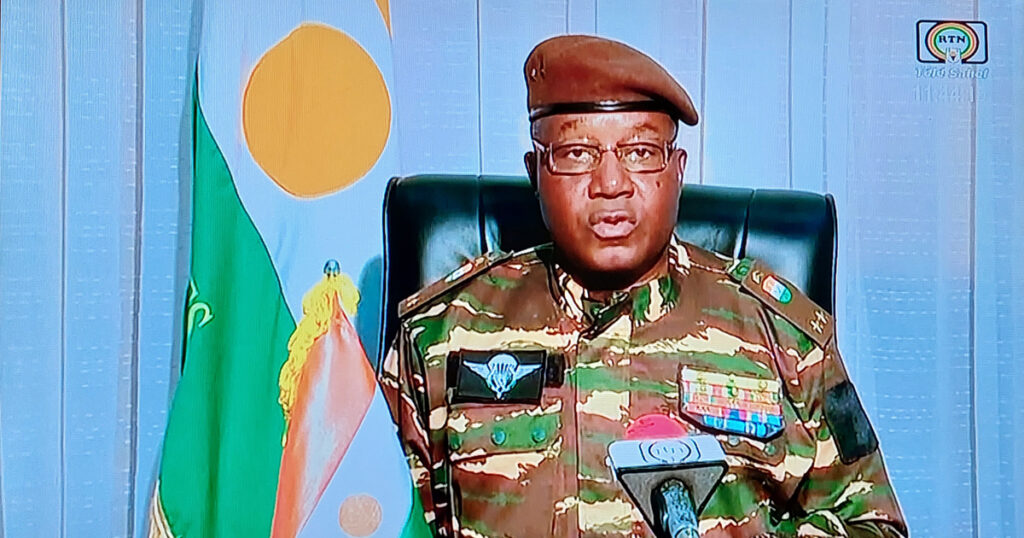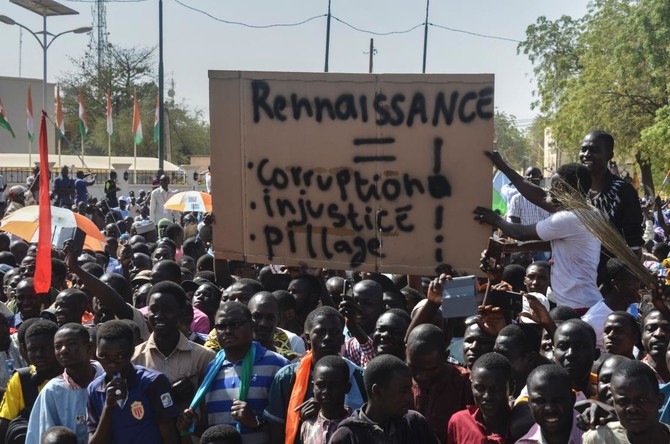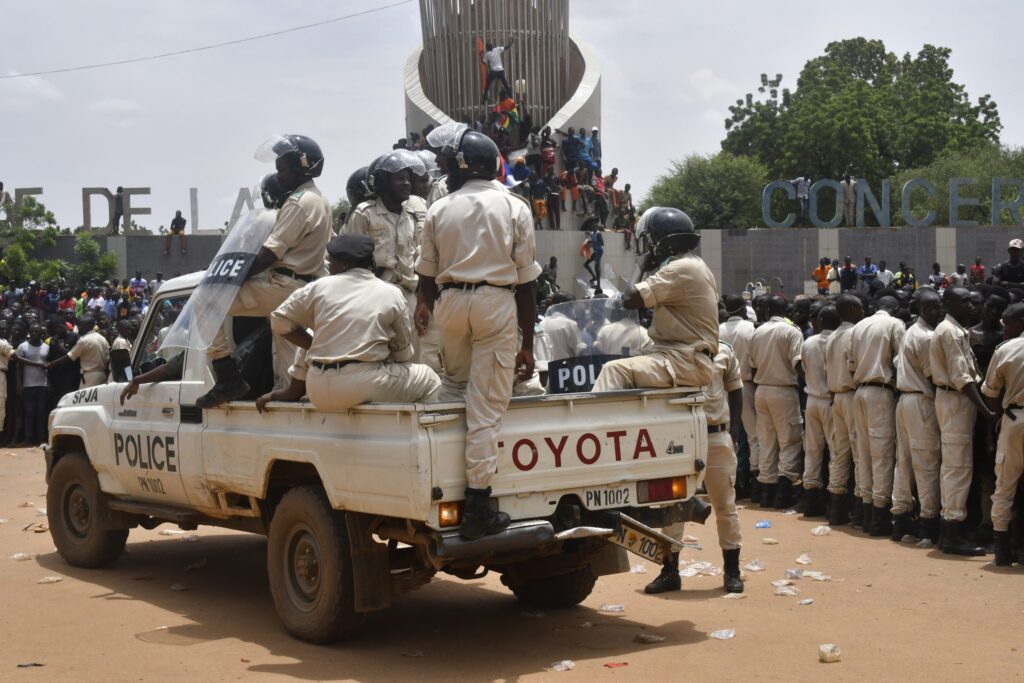Title: Shifting Tides in Africa: West Grapples with Coups, Russia Seeks Opportunities
Date: August 4, 2023
It is evident that the recent wave of military coups in Africa has sent shock waves through the continent and has become a major headache for Western powers while presenting opportunities for Russia. The overthrow of democratically elected leaders in several countries, including Niger, has raised concerns about stability and security in the region. The coups have also exposed deep-rooted resentment towards former colonial powers, particularly France, and have opened the door for Russia to extend its influence in the continent.
The latest coup in Niger saw President Mohamed Bazoum being deposed by his own palace guard, leading to international condemnation. Thousands of supporters of the takeover gathered at the French embassy in Niamey, tearing down a plaque and expressing anti-French sentiment. French President Emmanuel Macron threatened retaliation against any attacks on French nationals and called the coup “completely illegitimate and profoundly dangerous.”
During a televised speech on Wednesday, 2nd August 2023 , General Tiani, the commander of Niger’s palace guard who led the coup, reassured French nationals, stating that they had nothing to fear and had never faced any threats. He firmly rejected the international sanctions imposed after the coup, asserting that he would not succumb to any form of intimidation.

Paris reported that as of Wednesday, French planes had successfully evacuated a total of 992 individuals, including 560 French citizens, from Niger.
The United States and other Western nations also condemned the coup, with the US President Joe Biden calling for the immediate release of President Bazoum while conveying the message that Washington expresses its solidarity with the people of Niger, terming the coup “a grave challenge to Niger’s democracy”. On Wednesday, the US State Department issued a statement, ordering the departure of non-emergency US government employees and eligible family members from the US Embassy in Niamey ( the capital and largest city of Niger).
The coups in Africa have not occurred in isolation. In the past three years, five countries in western and central Africa, including five former French colonies, have experienced military takeovers. These events have unfolded amid a broader struggle between the West and Russia for influence in Africa. Rising anti-Western sentiment in former French colonies has created opportunities for the Kremlin to exploit.
While there is no direct evidence linking Russia to the Niger rebellion, Moscow has sought to capitalize on the prevailing anti-Western sentiment in the region. Wagner, a Russian mercenary group, has been supporting several military juntas in Africa and could potentially exploit the crisis in Niger. Wagner’s leader, Yevgeny Prigozhin, has celebrated the coup and offered help to the country’s new leaders.
The coup in Niger has deprived France and the United States of a crucial ally in the fight against Islamist jihadists in the region. Niger, being the largest country in West Africa, played a significant role in regional security efforts. Both France and the US had troops stationed in the country to counter insurgents affiliated with ISIS and al-Qaeda. Furthermore, Niger is a leading supplier of uranium to the European Union, which adds to its strategic importance.
One of the driving factors behind the coup in Niger is the rising resentment towards France and its lingering neo-colonial practices. Many Nigeriens see France as responsible for their country’s prevailing poverty levels and feel that the former colonial power still exerts undue influence over their nation’s affairs.
“We came out to tell this little Macron from France that Niger belongs to us. It is up to us to do what we want with Niger, we deal with who we want,” Maman Sani, a pro-coup protester, told CNN.
The relationship between France and its former colonies, known as Françafrique, has been criticized for perpetuating colonial practices and maintaining economic control.
Some supporters of the coup in Niger were out on the streets cheering as soon as the coup was announced and deemed successful, some of whom were holding Russian flags, cheered “long live Putin” and expressed anti-French sentiment “down with France” as they tore down a plaque at the French embassy.

This anti-French sentiment is also echoed in other former French colonies in West and Central Africa. The CFA franc, a currency used by 14 nations in the region, has been a point of contention, as it is backed by the Banque de France and pegged to the euro. Critics argue that this arrangement allows France to exert economic control over these countries.
The resentment towards France’s influence presents an opportunity for Russia to extend its reach in Africa. Moscow has intensified its efforts in the continent, and the Wagner group has been a central instrument in Russia’s growing influence.
“The region is shaken up by the desire for change from different people,… “This has led us to turn our backs on traditional partners and to turn to our real friends, like Russia which has supported us through decolonization until today,” said 34-year-old Ibrahim Traore who seized power in a coup last October and became Africa’s youngest head of state
President Vladimir Putin’s charm offensive towards African leaders and offers of aid and support are apparently part of Russia’s strategy to gain a foothold in the region.
As the situation in Niger unfolds, ECOWAS (Economic Community of West African States: a regional political and economic union of fifteen countries located in West Africa), is considering the possibility of military intervention to reinstate the democratically elected president.
“Military option is the very last option on the table, the last resort (in quelling the coup in Niger), but we have to prepare for the eventuality,” said Ecowas commissioner for political affairs, peace and security, Abdel-Fatau Musah.

However, such an intervention would be complex and faces challenges due to the proliferation of violence associated with Jihadi terrorism and other conflicts in the region. The involvement of the Wagner group and the backing of other African countries supportive of the coup leaders could escalate the situation further.
The coups in Africa and the resulting shifts in alliances and power dynamics are reshaping the geopolitical landscape of the continent. With competing interests from Western nations, Russia, China, and others, Africa has become a battleground for influence and resources. The future stability and development of the region will heavily depend on how African nations navigate these complex dynamics and forge new partnerships that prioritize their interests and sovereignty.